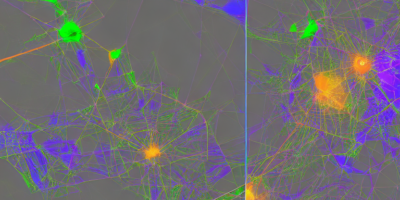Quantum computing is a rapidly advancing field that uses quantum mechanics to perform complex computations. Qiskit is an open-source framework developed by IBM that makes it easier for researchers and developers to build and run quantum algorithms. In this article, we will explore the key features and capabilities of Qiskit, as well as its potential applications in various industries.
Qiskit: An Overview
Qiskit is a software development kit (SDK) that provides a set of tools and libraries for programming quantum computers. It was designed to be user-friendly and accessible, allowing developers to focus on writing code rather than managing complex infrastructure. Qiskit supports various quantum hardware platforms, including IBM’s Quantum Experience and third-party devices.
Key Features of Qiskit
- Quantum Circuit Language (QCL): Qiskit uses a simple and intuitive language for defining quantum circuits called Quantum Circuit Language (QCL). This language allows developers to write code that is easy to read and understand, making it easier to debug and optimize.
- Quantum Assembly Language (QAL): Qiskit also supports Quantum Assembly Language (QAL), which is a low-level language for programming quantum computers. QAL provides more control over the quantum hardware, allowing developers to implement complex algorithms with fine-grained control.
- Hardware Support: Qiskit supports a variety of quantum hardware platforms, including IBM’s Quantum Experience and third-party devices. This allows developers to test and optimize their code on different hardware configurations.
- Quantum Simulator: Qiskit includes a built-in quantum simulator that allows developers to run simulations of quantum circuits on classical hardware. This helps developers to debug and optimize their code without the need for real quantum hardware.
Applications of Qiskit
Qiskit has numerous potential applications in various industries, including:
- Quantum Chemistry: Qiskit can be used to simulate complex chemical reactions and optimize drug discovery processes. This could lead to more efficient and effective drugs with fewer side effects.
- Optimization: Qiskit can be used to solve complex optimization problems in fields such as finance, logistics, and energy management. This could lead to more efficient decision-making processes and better resource allocation.
- Machine Learning: Qiskit can be used to train machine learning models on quantum computers, which could lead to more accurate predictions and faster training times.
- Cryptography: Qiskit can be used to develop new cryptographic protocols that are more secure than those currently in use. This is because quantum computers can perform certain calculations much faster than classical computers, making them ideal for breaking encryption codes.
Conclusion
Qiskit is a powerful and versatile framework that makes it easier for researchers and developers to build and run quantum algorithms. Its user-friendly interface and extensive libraries make it accessible to a wide range of users, from beginners to experts. With its support for various hardware platforms and built-in simulator, Qiskit is poised to revolutionize the field of quantum computing. As more research and development are invested in this technology, we can expect to see applications emerge in industries such as chemistry, optimization, machine learning, and cryptography.



